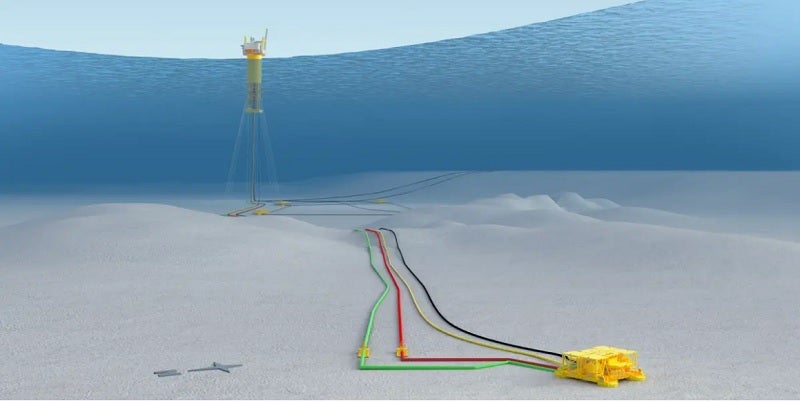
Equinor has submitted a plan for development and operation (PDO) for the NOK14.8bn ($1.46bn) Irpa gas project in the Norwegian Sea to the Norwegian Petroleum and Energy Minister Terje Aasland.
Previously called Asterix, the Irpa gas discovery located in the Vøring Basin is aimed to be brought into production in Q4 2026.
The gas discovery will be developed by drilling three wells and an 80km pipeline to the Aasta Hansteen platform.
According to Equinor, the Irpa gas project will extend the life of the Aasta Hansteen platform in the Vøring area from 2032 to 2039.
The Norwegian oil and gas firm said that there will be joint production from the Irpa and Aasta Hansteen fields through 2031. The Aasta Hansteen gas field has been producing since 2018.
Equinor projects, drilling, and procurement executive vice president Geir Tungesvik said: “This is a good day—the development of Irpa will contribute to predictable and long-term deliveries of gas to customers in the EU and the UK.”
The deep water Irpa gas discovery was proven in 2009.
Located 340km west of Bodø, it has an estimated recoverable gas resources of around 20 billion standard cubic metres. This is equivalent to 124 million barrels of oil equivalent (boe) or the consumption of gas by around 2.4 million British homes over a period of seven years.
The gas drawn from the Irpa field will be phased into existing infrastructure over the Aasta Hansteen spar platform. It will be then transported to the Nyhamna gas processing plant through the Polarled pipeline and subsequently through the Langeled pipeline system to the UK and continental Europe customers.
Equinor Energy is the operator of the Irpa field with a stake of 51%. The other partners in the offshore gas field are Wintershall DEA (19%), Petoro (20%), and Shell (10%).
Irpa project director Hogne Pedersen said: “It has been challenging to develop Irpa. Deep water and low temperatures on the seabed have necessitated the qualification of innovative new technology for pipelines, but good support in the partnership and increased demand for gas have made an investment decision possible.”





